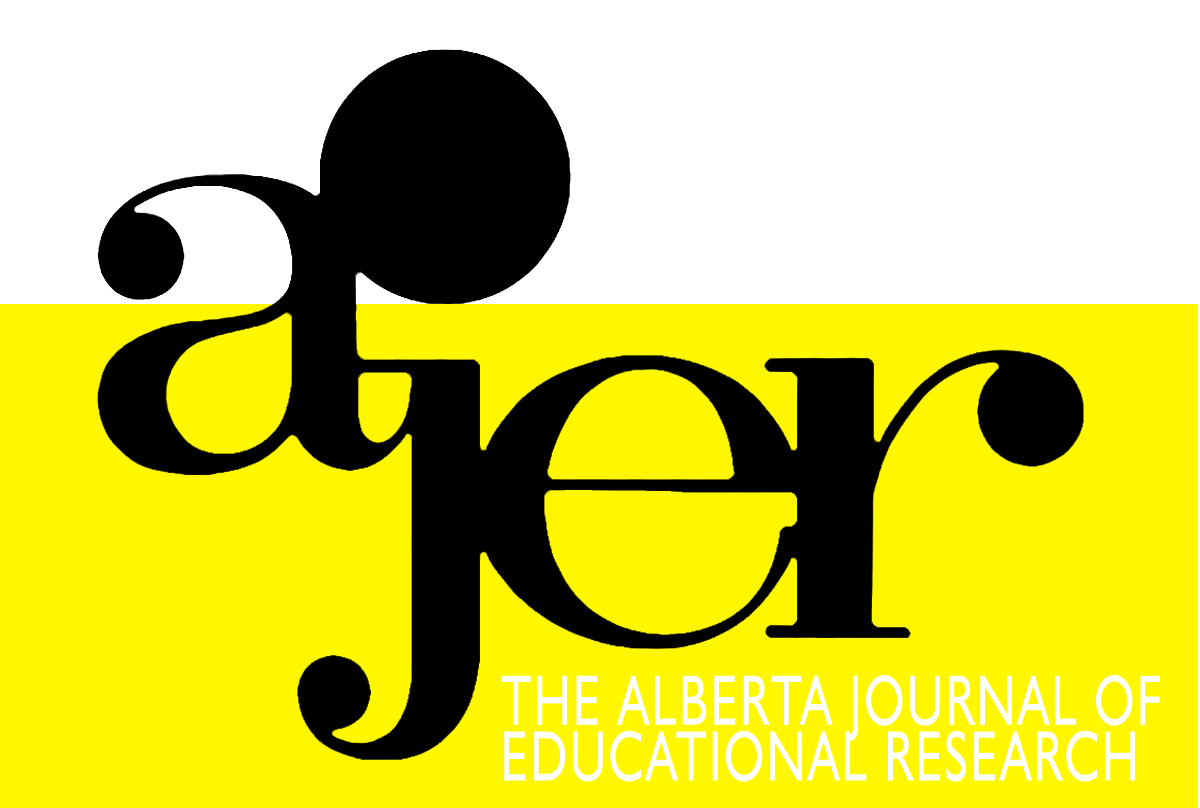The Growth of Computer Science Education in Alberta: An Analysis of High School Course Completion Trends
DOI:
https://doi.org/10.55016/ojs/ajer.v69i3.75299Abstract
Computer Science (CS) education is an emergent growth area in schools worldwide. This paper explores how CS education has evolved at the high school level (grades 10–12) in the Canadian province of Alberta over the past decade after a reorganization and curriculum redesign of its Computing Science Education (CSE) program. In partnership with Alberta Education, a complete list of course records was obtained for high school students who had taken CSE course credits between 2009 and 2019. These course completions were analyzed for overall growth trends and then further examined with respect to course level, urbanicity, and gender. We found that growth in course credit completion has been consistent over the 10-year study period (annual average growth rate of 33.5%). Advanced course credits have grown faster than introductory course credits, urban areas have grown faster than rural areas, and gender growth rates have been similar for males and females. Understanding the growth rates of CSE course enrollments at the high school level will contribute to identifying some of the challenges encountered during the implementation of the CSE program of studies in Alberta.
Keywords: High School Computer Science Education; Gender Participation.
L'enseignement de l'informatique est un domaine de croissance émergent dans les écoles du monde entier. Cet article explore l'évolution de l'enseignement de l'informatique au niveau secondaire (10e à 12e année) dans la province canadienne de l'Alberta au cours de la dernière décennie, après une réorganisation et une refonte du programme d'études de l'informatique. En partenariat avec le ministère de l'éducation de l'Alberta, on a obtenu une liste complète des dossiers de cours pour les élèves du secondaire qui ont reçu des crédits pour des cours d’informatique entre 2009 et 2019. Ces cours ont été analysés pour déterminer les tendances générales de croissance, puis examinés plus en détail en fonction du niveau de cours, de l'urbanité et du sexe. Nous avons constaté que la croissance de l'obtention de crédits de cours a été constante au cours de la période d'étude de 10 ans (taux de croissance annuel moyen de 33,5 %). Les crédits de cours avancés ont augmenté plus rapidement que les crédits de cours d'introduction, les zones urbaines ont augmenté plus rapidement que les zones rurales, et les taux de croissance ont été similaires pour les hommes et les femmes. La compréhension des taux de croissance des inscriptions aux cours d'informatique au niveau secondaire contribuera à identifier certains des défis rencontrés lors de la mise en œuvre du programme d'études en informatique en Alberta.
Mots clés : Enseignement de l'informatique au niveau secondaire ; participation des hommes et des femmes.
Downloads
Published
Issue
Section
License
UNIVERSITY OF ALBERTA COPYRIGHT LICENSE AND PUBLICATION AGREEMENT
If accepted, authors will be asked to sign a copyright agreement with the following points:
A. Where there is any inconsistency between this Copyright License and Publication Agreement and any other document or agreement in relation to the same subject matter, the terms of this Agreement shall govern.
B. This document sets out the rights you are granting in relation to publication of your article, book review, or research note entitled (the “Article”) through inclusion in the academic journal titled Alberta Journal of Educational Research (the “Journal”) published through the Faculty of Education, representing the Governors of the University of Alberta (the “Journal Editor”).
C. There will be no payment to you for this publication and grant of rights. In consideration of the agreement to publish the Article in the Journal:
1. You are warranting that:
- the content of the Article is your original work, and its content does not contain any material infringing the copyright of others; or, where the Article is not entirely your original work, you have obtained all necessary permissions in writing to grant the rights you are giving in this agreement;
- the content of the Article does not contain any material that is defamatory of, or violates the privacy rights of, or discloses the confidential information of, any other person;
- the Article has not been published elsewhere in whole or in part, and you will not allow publication of the Article elsewhere without the consent of the Journal Editor;
- the names of all co-authors and contributors to the Article are:
2. You agree to license the copyright in the Article to the Journal Editor, on a worldwide, perpetual, royalty free basis; and to the extent required by the terms of this agreement. You shall retain the right at all times to be acknowledged as the/an author of the Article.
3. You further agree that the Journal Editor has the entitlement to deal with the Article as the Journal Editor sees fit, and including in the following manner;
- The right to print, publish, market, communicate and distribute the Article and the Journal, in this and any subsequent editions, in all media (including electronic media), in all languages, and in all territories, ing the full term of copyright, and including any form of the Article separated from the Journal, such as in a database, abstract, offprint, translation or otherwise, and to authorize third parties to do so;
- The right to register copyright of the Journal;
- The right to edit the Article, to conform to editorial policy as the Journal Editor sees fit.
4. If any co-author or contributor to the Article does not sign this agreement, the Journal Editor reserves the right to refuse to publish the Article.



